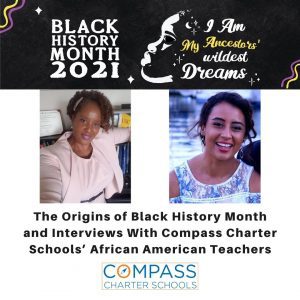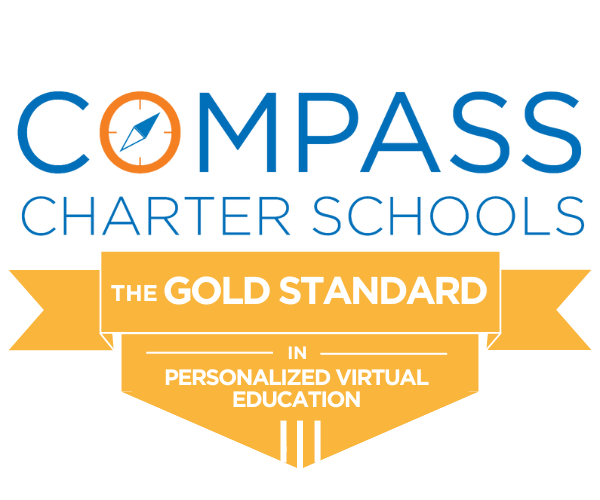
The Origins of Black History Month
Black History Month began in Chicago in 1915, fifty years after the 13th Amendment abolished slavery in the United States. Jesse E. Moreland, a minister, and Carter G. Woodson, a Harvard-trained historian, founded the Association for the Study of African Life and History (ASALH), an organization dedicated to researching and promoting achievements of Black Americans and other peoples of African descent. Thousands of African Americans traveled across the country to see the exhibits highlighting their people’s progress since the destruction of slavery, turning into a three-week celebration.
Woodson selected the month of February to encompass the birthdays of two great Americans who played a prominent role in shaping black history, Abraham Lincoln and Frederick Douglass, whose birthdays are the 12 and the 14. More importantly, he chose them for reasons of tradition. Since Lincoln’s assassination in 1865, the black community and other Republicans celebrated the fallen president’s birthday. And since the late 1890s, black communities across the country had been celebrating Douglass, who escaped slavery to become a prominent activist, author, and public speaker.
Woodson shined a light on the countless black men and women who had contributed to the advance of human civilization. The black middle class began to expand and consume black literature and culture. Black history clubs formed, and teachers demanded materials to instruct their scholars. Woodson and the Association began to set a theme each year for the celebration, and ASALH branches formed from coast to coast. By the late 1960s, young blacks on college campuses became increasingly conscious of links with Africa and celebrating Black History Month.
Black History Month continues to this day. This year’s theme is “Black Family: Representation, Identity, and Diversity,” which explores the African diaspora (A diaspora is a scattered population whose origin lies in a separate geographic locale) and the spread of Black families across the United States. To learn more, visit here.
Interviews with Compass Charter Schools’ African American Supervising Teachers Dr. Yulonn Harris and Mrs. Ashley Fletcher
What did you want to become as a little child?
Dr. Harris: I wanted to be a bilingual civil rights attorney! I wanted to fight injustice and become an advocate for the voiceless.
Mrs. Fletcher: A doctor.
What has been your career path?
Dr. Harris: I went to Central State University for Political Science Pre-Law and Spanish. I studied abroad in Michoacan, Mexico. I graduated with a dual degree and went to law school. After a year of law school, I felt a calling instead to teach. I went on to get my Master’s in Education, a single subject credential, and a doctorate at USC in Education Leadership.
Mrs. Fletcher: I decided to become a teacher after tutoring ESL students at the local community college. I started out teaching piano in high school, then moved on to tutoring. I love working with children, so I decided to teach.
What is your background, where are you from, upbringing, etc.?
Dr. Harris: I have a twin brother, and we are both doctors; I also have a younger sister. I grew up with parents who instilled a no-nonsense attitude. Both of my parents prioritized the importance of education. They both got their Master’s degrees. We are a family rooted in education, love, values, and discipline.
Mrs. Fletcher: I was born in Mountain View, CA, to two loving parents. My father is native-born Jamaican, and my mom is second-generation Guatemalan. I was raised in the San Diego area since I was about three years old. My Mom made sure to teach me Spanish, so I am bilingual.
What are your hobbies, pastimes, what do you like to do for fun?
Dr. Harris: I am an avid learner at heart. I love to travel; I have been all over Panama, South Africa, Jamaica, Aruba, Dominican Republic, Mexico, and more! I love sports! I worked with the Colorado Rockies as a Virtual Curriculum Specialist and taught English to Spanish-speaking players. I love to swim, play basketball, and watch sports.
Mrs. Fletcher: I love baking and spending time with my family and extended family, who all live relatively close.
Who is your African American role model?
Dr. Harris: Phylicia Rashad, Clair Huxtable from The Cosby Show. She was so inspiring as a bilingual attorney. She was everything that I aspired to be! She spoke Spanish on the show; she was a great attorney, mother, and role model. I remember watching The Cosby Show every week in my home growing up. Other role models today include Stacey Abrams, Oprah, Michelle Obama, Cicely Tyson, and Beyonce.
Mrs. Fletcher: Misty Copeland, George Washington Carver, and many others who did not let the color of their skin define what they could or could not do.
What does Black Lives Matter (BLM) mean to you?
Dr. Harris: BLM is a movement for the people. It is for equality at the end of the day. We are nominated for the noble peace prize, along with Stacey Abrams. It is a peaceful movement toward equality. It focuses on black lives here in America and for all to be treated as equal.
Mrs. Fletcher: Honestly, I think it is imperative to bring to light the racism that is still happening in our country. While many might believe it is a free country and that we have equality, we do not. In that respect, attention to equality is critical. However, violence is not. The goal should be equality; otherwise, we are just turning the tables the other way. There needs to be equality for Native Americans, Asian Americans, Hispanics, and all races.
What do you do here at Compass, what ages do you work with, and in which department?
Dr. Harris: I am a Supervising Teacher in the Options Program. I love what I do, working with a diverse group of families on their personalized education. I help scholars select the best curriculum for them. I support a diverse group of scholars, and I used my Spanish with my Spanish-speaking scholars. I hope to make a difference in what I do in the lives of my Compass families.
Mrs. Fletcher: I am a Supervising teacher K-12 Options department.
How can people outside the African American race help end racism?
Dr. Harris: We can all help end racism by standing with each other as human beings and support a peaceful movement. We need to teach about black lives in schools and come together as a nation so that no one will suffer again.
Mrs. Fletcher: Don’t say you don’t see race. Everyone sees race; it’s the association you have that matters. See race, but celebrate every culture, race, and background. Ask questions! Please get to know people and where they come from. My husband is white, and he has always celebrated my culture. At family get-togethers, he tries our cultural foods, dances to our cultural music, and engages in cultural conversations because he cares. The point isn’t to elevate one race over another; the point is to celebrate the differences and embrace each other’s backgrounds.
Thank you for the interviews, Dr. Harris and Mrs. Fletcher; it was a privilege. Let’s continue to fight for equality for all.
Additional Resources
https://www.oprahmag.com/black-history-month/
https://www.history.com/topics/black-history
https://www.websiteplanet.com/blog/support-black-owned-businesses/
